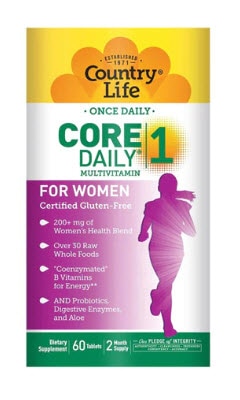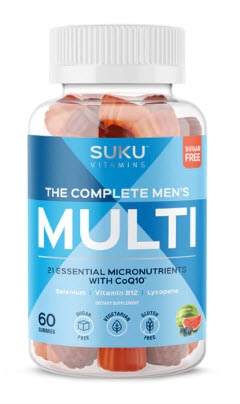It’s no secret that the supplement industry is booming. According to a national survey from 2019, about 77 percent of Americans reported taking supplements. Multivitamins are the most popular type of supplement, out-ranking the others by more than double.
With thousands of vitamin and mineral supplements on the market, the question arises regarding whether it is better to take individual supplements or to combine them as one in a multivitamin. This article will break down the pros and cons of each in order to give you a better picture of why this may matter and what is the best option for you.
Do you need to take supplements?
If you eat a well-balanced diet, you may believe that you get all the nutrients you need through food alone. While it is always a good idea to get most of your nutrition from whole food sources, there are many reasons why taking certain supplements may be indicated for you.
These reasons may include:
- Dietary restrictions, such as being vegetarian, vegan, gluten-free or simply a picky eater
- Health conditions, such as cancer, bariatric surgery or gastrointestinal disorders that may impair nutrient digestion and absorption from the diet
- Taking certain medications that can interfere with the usability of nutrients
- Increased nutrient needs based on level of activity or unique life stage (ex: athletes, the elderly or pregnant women)
- Desires to achieve a specific health goal (such as lower cholesterol, or improving bone or brain health)
(Tip: Read more about some of the most important supplements that just about anyone can benefit from.)
Pros and cons of multivitamins versus individual supplements
There are both benefits and downsides of taking multivitamins compared to taking individual vitamins and minerals. Here’s a breakdown of each:
Pros of taking a multivitamin
- Ability to receive a wide variety of nutrients in one dosage
- Convenient
- Many also include other beneficial nutrients such as antioxidants in addition to vitamins and minerals
Cons of taking a multivitamin
- May cause you to take in much more than you need of particular vitamins and minerals, which your body may not end up even using
- May actually decrease the absorption of some vitamins or minerals, since many nutrients, like calcium and iron, compete for absorption
Pros of taking individual vitamins and minerals
- The nutrients are usually offered in a higher dose which may be better targeted to where your diet may be lacking
- The nutrients may be more effective at treating or preventing specific health conditions
- May be better targeted at treating or preventing conditions associated with deficiency
- May be better absorbed and utilized by your body if separate nutrients are taken at different times during the day to reduce competition (ex: taking iron in the morning and calcium at night)
Cons of taking individual vitamins and minerals
- Less convenient, with more pills to take
- Usually more expensive
- May be missing out on other vitamins or minerals you could otherwise benefit from
- Requires more time management and memory of when to take which supplement
So, which supplements should you choose?
The question of which supplements are right for you is a highly individualized answer. There is no “one-size-fits-all” supplement regimen. Both multivitamins and individuals vitamins and mineral supplements have benefits. Which to take may come down to factors such as lifestyle and current health conditions, as well as personal preference.
With any supplements, it is important to seek expert advice from your doctor and/or a health professional like a Registered Dietitian. These people can help evaluate your health and diet and guide you to the right supplement choices.
When buying supplements, it is also always important to buy from reputable brands, especially since the supplement industry is not well regulated by the FDA in the US. To help ensure your supplements are high quality, consider purchasing from brands that are voluntarily third-party tested. Some labels to look for that indicate this include USP, NSF, Consumer Lab and GMP. You can also do your own research on the supplement’s website to find out their testing process.




